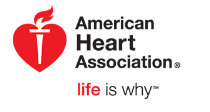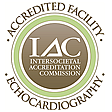Sex and Heart
Testosterone, balding and heart
Men get heart disease ten years before women normally do. Why is this? Some suggest that men’s higher level of testosterone is the cause; some doctors suspect that there is a link between testosterone and heart disease.
For instance, testosterone is what causes men to go bald. Although the connection between baldness and heart disease is a little shaky, studies have shown that men with severe baldness have a bigger chance of getting heart disease than men with a full head of hair. Going bald doesn’t necessarily mean you’ll get heart disease, but it’s a sign that you should start checking things like your blood pressure and cholesterol. Perhaps testosterone is the link between baldness and heart disease; it’s certain that too much of it can damage the heart and your metabolism.
Are you a playboy?
Surprisingly, promiscuity in sex can also increase risk of heart disease or heart attack. Promiscuity increases risk of getting a sexually transmitted disease, or STD. Some STDs, such as human papillomavirus, one of the top causes of cervical cancer, may also increase your risk of heart attack. So, before you choose your next sexual partner, think wisely.
Erectile dysfunction is an indirect sign
Erectile dysfunction may also be a sign that you have heart problems. Erectile dysfunction is caused by lack of blood flow – or not enough blood – to the penis. In turn, this poor circulation is caused by atherosclerosis, or hardening of the arteries. Hardening of the arteries in the penis is a warning sign to look for hardening of the arteries around the heart and other organs. Hardening of the arteries also puts you at risk of having a stroke, peripheral artery disease, or an aneurysm.
However, not all erectile dysfunction signals heart problems. Men whose erectile dysfunction could be a sign of heart disease are younger than fifty, depressed, overweight, have diabetes, high cholesterol, or high blood pressure, or have a history of heart disease in the family. In the mean time, exercise and healthy eating are good ways to keep your heart healthy as well.
Sexual activity and heart attack
The worry among many couples in old age: could sexual activity cause a heart attack? Although physical activity is good for your heart, strenuous activity can cause a heart attack. The risk of having a heart attack while engaged in physical activity is 3.5 times higher than while you’re not doing anything physical. During sex, that risk is nearly 2.7 times higher.
However, the benefits of exercise are worth the risk. The more in shape you are, the less risk you have of causing a heart attack by exercising. Exercise leads to healthier, stronger muscles, your heart included. However, you shouldn’t over exert yourself. If you can’t climb a set of stairs without feeling too winded and out of breath, you probably shouldn’t be engaging in sex. Although sexual activity isn’t too strenuous, it is possible if you aren’t in shape enough that it could trigger a heart attack.
Estrogen – can it stop heart attack?
While testosterone in men seems to be linked to the cause of heart disease, estrogen in women seems to be linked to the prevention of heart disease. Estrogen largely affects your organs and circulatory system, giving it a direct link to the heart and surrounding blood vessels. Estrogen helps the heart by increasing good cholesterol (HDL) and lowering bad cholesterol (LDL). Estrogen also encourages formation of blood clots where needed, and increases blood flow by relaxing, smoothing and enlarging blood vessels. This increases blood flow to the heart, fighting hardening arteries and increasing heart health.
Unlike testosterone, which may be harmful or helpful, estrogen is mainly helpful. It even absorbs particles in the blood that can cause harm to the arteries. Scientists believe that estrogen may be the reason that women become at risk for heart disease ten years after men. At the age of sixty-five, women’s estrogen levels go down, taking away much of the helpful effects that strengthen the heart.
Although you may not exhibit any of the symptoms listed in the article above for heart disease, as you grow older you should still take precautions. Make sure you exercise regularly – though not too strenuously – and maintain a healthy diet. Drinking less alcohol and quitting smoking will help keep your heart healthy too. If you think you are exhibiting any of the warning signs of heart disease, make sure you go see a doctor. At the same time, it is a good idea to keep in mind that some of the signs – baldness, erectile dysfunction – are not necessarily major indicators of heart problems. Make sure you keep your body healthy, and your heart will be healthy as well.
Sources:
http://www.mayoclinic.com/health/erectile-dysfunction/HB00074
http://www.aarp.org/home-family/sex-intimacy/info-01-2013/can-sex-give-me-a-heart-attack.2.html
http://www.everydayhealth.com/longevity/can-promiscuity-threaten-longevity.aspx
http://www.health.harvard.edu/fhg/updates/testosterone-and-the-heart.shtml
http://my.clevelandclinic.org/heart/prevention/estrogen-hormones/default.aspx





